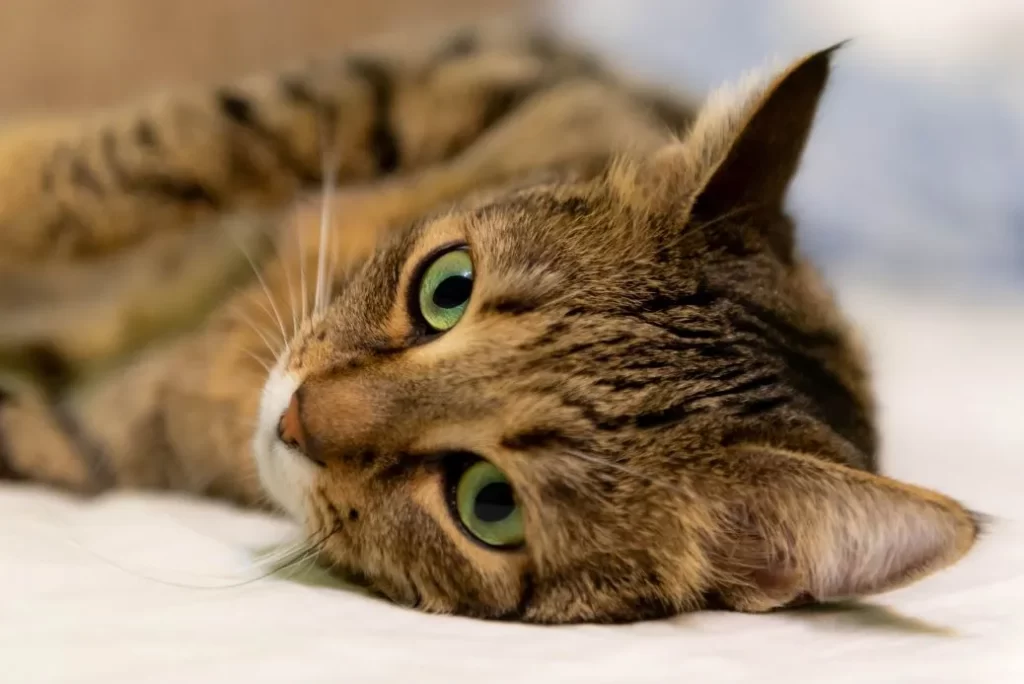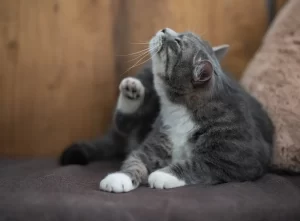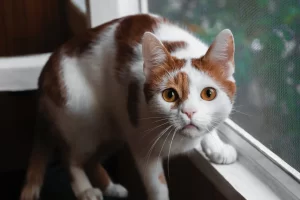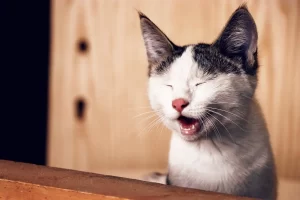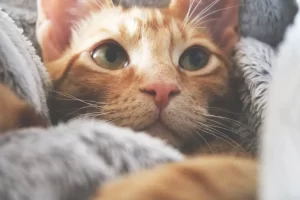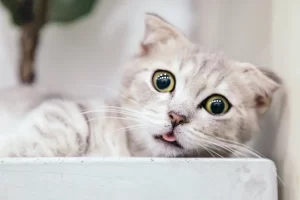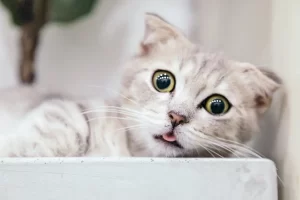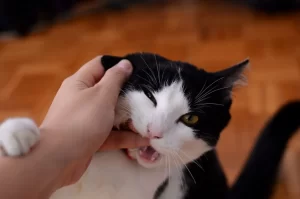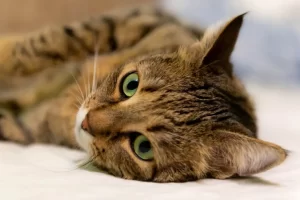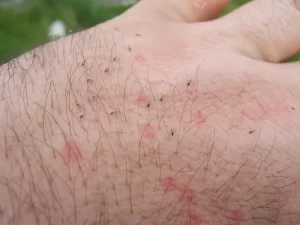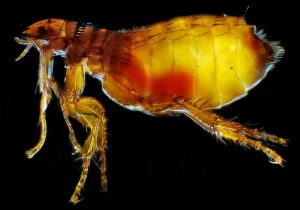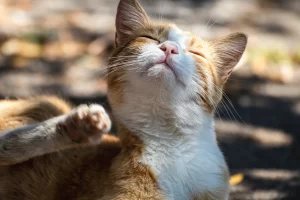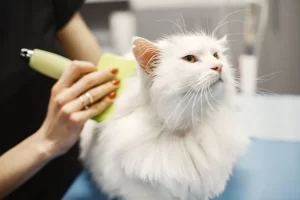Cats in heat can be a challenging time for both pet owners and their feline companions. From incessant meowing to territorial marking, the symptoms of a cat in heat can be overwhelming. While there are medical options available, many pet owners prefer to use natural, home remedies to alleviate the symptoms of a cat in heat. In this article, we will explore various home remedies for cats in heat, including herbal supplements, essential oils, and dietary changes. We will also discuss the benefits and potential drawbacks of each approach, so you can make an informed decision about the best course of action for your feline friend.
If you prefer to listen on-the-go, be sure to check out the audio version of this blog below!
Table of Contents
ToggleWhat is a cat in heat?
A cat in heat refers to a female cat who is in the reproductive phase of her reproductive cycle, also known as estrus. During this time, the cat’s body is preparing for breeding and ovulation, and it will exhibit certain behaviors and physical changes. These behaviors include increased vocalization, restlessness, marking their territory with urine, and rolling around on the ground. Cats in heat will also be more affectionate and may rub against objects or people more frequently. This phase can last for several days, usually 7-10 days, and can occur every 2-3 weeks. It is important to note that cats in heat can get pregnant if not prevented. To learn more about cats in heat, check out our comprehensive guide on what does it mean when a cat is in heat?
Recognizing the signs of a cat in heat
Understanding the signs and symptoms of a cat in heat is an important aspect of providing proper care for your feline companion. Cats in heat, also known as estrus, experience a variety of physical, behavioral, and vocal changes. By recognizing these signs, pet owners can take appropriate action to alleviate any discomfort and manage the behavior of their cat during this time.
Physical changes associated with a cat in heat include a swollen vulva, which may appear reddened and puffy, and a clear or bloody discharge. These changes occur as the cat’s body prepares for ovulation and potential mating.
Behavioral changes associated with a cat in heat include increased affection and restlessness, as well as territorial marking. Cats in heat may rub against objects and people more frequently, roll around on the ground, and even crouch down and raise their hindquarters when stroked on their back. They may also be more vocal than usual, meowing, yowling, and howling, as they seek out a mate.
Cats typically experience heat cycles every two to three weeks and the duration of each heat cycle can vary from a few days to two weeks. However, this can vary depending on the cat’s age, breed, and overall health. It is important to note that cats can also exhibit similar symptoms due to other behavioral issues, such as anxiety or aggression, and thus it is important to consult with a veterinarian if you are unsure of what is causing the behavior.
In addition to providing home remedies during the heat cycle, spaying or neutering cats can prevent heat cycles and potential health issues. It is always a good idea to consult with a veterinarian before administering any treatments. By understanding the signs and symptoms of a cat in heat, pet owners can provide the best care for their feline companions during this time.
Read More: How often do you take a cat to the vet?
Herbal Remedies for Cats in Heat
Herbal supplements can be a natural and effective way to alleviate the symptoms of a cat in heat. Some supplements that may be helpful include:
- Chamomile: Chamomile is known for its calming properties and may help to reduce restlessness and agitation in cats during a heat cycle. It can be given as a tea or in capsule form.
- Valerian root: Valerian root is a well-known sedative and may help to reduce anxiety and restlessness in cats during a heat cycle. It can be given in capsule form or as a tincture.
- Black cohosh: Black cohosh is a herb that is believed to help balance hormones and may be useful in reducing the symptoms of a cat in heat. It can be given in capsule or tincture form.
- Ashwagandha: Ashwagandha is an adaptogen herb that helps to reduce stress and anxiety. It can be helpful to cats during heat cycle as it can help to reduce restlessness and agitation.
- Red raspberry leaf: Red raspberry leaf is a herb that is believed to help balance hormones and may be useful in reducing the symptoms of a cat in heat. It can be given in tea or capsule form.
- Dong Quai: Dong Quai is an herb that is believed to help balance hormones, it may be useful in reducing the symptoms of a cat in heat. It can be given in capsule form.
- Wild yam: Wild yam is an herb that is believed to help balance hormones, it may be useful in reducing the symptoms of a cat in heat. It can be given in capsule or tincture form.
- St. John’s Wort: St. John’s Wort is an herb that is known for its anti-anxiety and anti-depressant properties, it may be useful in reducing the symptoms of a cat in heat. It can be given in capsule form.
It is important to note that these supplements should be used under the guidance of a veterinarian, as they may interact with other medications or have side effects. Additionally, not all cats will respond the same way to these supplements, so it is important to monitor your cat’s response and adjust the dosage accordingly.

Safely using essential oils for cats in heat
Safely employing essential oils can offer a natural and effective approach to alleviating the symptoms of a cat in heat. Some oils known to be beneficial include:
- Lavender: Renowned for its calming properties, lavender may help reduce restlessness and agitation in cats during their heat cycle. It can be diffused in the air or diluted with a carrier oil for a soothing massage.
- Bergamot: This calming essential oil can mitigate anxiety and stress in cats experiencing heat. Like lavender, it can be diffused or used with a carrier oil for massages.
- Vetiver: A grounding essential oil, vetiver can help reduce restlessness and agitation in cats during their heat cycle. Diffuse it in the air or dilute it with a carrier oil for massage.
- Chamomile: Known for its calming effects, chamomile can alleviate restlessness and agitation in cats during heat. Diffuse it or mix it with a carrier oil for massages.
- Clary Sage: This essential oil helps balance hormones and may be useful in reducing heat-related symptoms in cats. Use it in a diffuser or diluted with a carrier oil for massages.
- Geranium: Geranium helps balance hormones and may assist in minimizing heat cycle symptoms. Employ it in a diffuser or dilute it with a carrier oil for massages.
- Ylang Ylang: Ylang Ylang can reduce stress and anxiety in cats during heat; diffuse it in the air or use it with a carrier oil for massages.
- Sandalwood: This essential oil can aid in reducing restlessness and agitation during a cat’s heat cycle. Diffuse it or use it with a carrier oil for massages.
When using essential oils for cats, it’s crucial to dilute them with a carrier oil and use them in moderation to prevent any adverse reactions. Always monitor your cat’s response, and if you notice any signs of discomfort or irritation, discontinue use. Additionally, consult with a veterinarian before introducing essential oils to your cat’s routine to ensure their safety and well-being.
Nutrition and cats in heat
Nutritional changes can also be beneficial in helping to alleviate the symptoms of a cat in heat. Some changes to consider include:
- Increasing the intake of vitamins and minerals: Certain vitamins and minerals, such as Vitamin E and zinc, may help to regulate hormone levels and reduce the symptoms of a cat in heat. These can be found in foods like nuts, seeds, and leafy greens.
- Incorporating Omega-3 fatty acids: Omega-3 fatty acids can help to reduce inflammation and support a healthy immune system, which may be helpful in reducing the symptoms of a cat in heat. These can be found in fish oils or flaxseed oil.
- Adding probiotics: Probiotics may help to support a healthy gut microbiome, which can be beneficial for overall health and may help to reduce the symptoms of a cat in heat. These can be found in fermented foods or supplements.
- Avoiding certain foods: Some foods, such as soy products, can mimic estrogen and may exacerbate the symptoms of a cat in heat. It is important to consult with a veterinarian before making any significant changes to a cat’s diet.
- Incorporating a high-quality protein diet: Cats in heat may have higher protein requirements and a high-quality protein diet may help to reduce the symptoms of heat.
- Adding antioxidants: Antioxidants such as Vitamin C and Vitamin E can help to reduce inflammation and support overall health, which may be helpful in reducing the symptoms of a cat in heat. These can be found in fruits, vegetables, and supplements.
Providing enough water: Adequate hydration is essential for overall health and may help to reduce the symptoms of a cat in heat, as dehydration can cause increased restlessness and agitation.
Managing the environment for cats in heat
Managing a cat’s environment during a heat cycle can also be important in helping to alleviate the symptoms of a cat in heat. Some techniques to consider include:
- Providing extra hiding spaces: Cats in heat may become more territorial and may need extra hiding spaces to feel secure. This can include providing extra boxes or beds in different areas of the house.
- Reducing stress: Stress can exacerbate the symptoms of a cat in heat and may lead to increased restlessness and agitation. Techniques to reduce stress can include providing a consistent routine, using pheromone sprays, and providing interactive toys.
- Providing a scratching post: Scratching is a natural behavior for cats and providing a scratching post can help to reduce the urge to mark territory.
- Providing a quiet space: Cats in heat may become more vocal and may need a quiet space to retreat to.
- Limiting the cat’s access outdoors: During a heat cycle, unneutered male cats may be attracted to a female cat in heat, so it’s important to limit the cat’s access outdoors to prevent breeding and potential fights.
- Providing a cozy and comfortable space: Cats in heat may be more restless, and providing a cozy and comfortable space with soft beds, blankets, and pillows may help them to relax and feel more comfortable.
- Creating a play area: Cats in heat may be more active and may need more stimulation. Creating a play area with toys and interactive games may help to reduce restlessness and agitation.
It’s important to note that not all cats will respond the same way to these environmental changes, so it is important to monitor your cat’s response and adjust the environment accordingly. Additionally, it’s important to understand that the best way to manage the environment during a cat’s heat cycle is to have your cat spayed or neutered.
Using pheromones to help cats in heat
Pheromones are chemical signals that can have a calming effect on cats. They can be used to help reduce stress and anxiety in cats during a heat cycle. Some methods to use pheromones include:
- Pheromone sprays: Pheromone sprays can be sprayed on bedding, scratching posts, or other areas where the cat spends time. These sprays mimic the scent of a mother cat’s pheromones, which can have a calming effect on cats.
- Pheromone diffusers: Pheromone diffusers release a synthetic version of the pheromones that cats naturally produce. These diffusers can be plugged into an outlet in the room where the cat spends the most time and can help to create a sense of security and reduce stress.
- Pheromone collars: Pheromone collars release a synthetic version of the pheromones that cats naturally produce. These collars can be worn by the cat and provide a constant source of calming pheromones.
It’s important to note that not all cats will respond the same way to pheromones, so it is important to monitor your cat’s response and adjust the dosage accordingly. Additionally, it’s important to use pheromone products under the guidance of a veterinarian, as they may interact with other medications or have side effects.
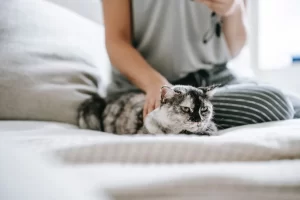
Relaxing cats in the heat with massage therapy
Massage therapy can be a helpful tool for relaxing cats and reducing symptoms of heat. Some techniques to consider include:
- Gentle stroking: Gently stroking a cat’s fur can have a calming effect and can help to reduce restlessness and agitation.
- Gentle pressure: Applying gentle pressure to specific points on a cat’s body, such as the ears, face, and legs, can have a calming effect and can help to reduce symptoms of heat.
- Gentle stretching: Gently stretching a cat’s limbs and tail can help to increase circulation and reduce tension in the muscles.
It’s important to note that not all cats will respond the same way to massage therapy, so it is important to monitor your cat’s response and adjust the technique accordingly.
How to use flower essences to help cats during the heat?
Flower essences are a form of energy medicine that can be used to help cats during the heat. They are made by infusing the energy of flowers into the water and are used to address emotional and behavioral issues. Some flower essences that may be helpful for cats in heat include:
- Aspen: This flower essence can help to address fear and anxiety. It can be helpful for cats who are anxious or restless during a heat cycle.
- Mimulus: This flower essence can help to address the fear of known things. It can be helpful for cats who are anxious or fearful during a heat cycle.
- Cherry Plum: This flower essence can help to address feelings of loss of control. It can be helpful for cats who are restless or agitated during a heat cycle.
- Star of Bethlehem: This flower essence can help to address trauma. It can be helpful for cats who have experienced trauma or stress in the past and are more affected by the heat cycle.
- Rescue Remedy: This flower essence blend is a popular and well-known remedy that can be helpful for cats in heat. It is a combination of several flower essences that can help to address stress and anxiety.
- Walnut: This flower essence can help to address change and transition. It can be helpful for cats who are struggling with the physical and emotional changes that occur during a heat cycle.
- Elm: This flower essence can help to address feelings of being overwhelmed. It can be helpful for cats who are struggling to cope with the symptoms of a heat cycle.
Flower essences are safe and can be used in conjunction with other remedies. It’s important to note that not all cats will respond the same way to flower essences, so it is important to monitor your cat’s response and adjust the dosage accordingly. Additionally, it’s important to use flower essences under the guidance of a veterinarian or a professional flower essence therapist, as they may interact with other medications or have side effects.
Homeopathy as a remedy for cats in heat
A homeopathy is a form of alternative medicine that uses highly diluted natural substances to stimulate the body’s natural healing response. It can be used as a remedy for cats in heat. Some homeopathic remedies that may be helpful for cats in heat include:
- Sepia: This homeopathic remedy can help to address restlessness and irritability. It can be helpful for cats who are restless or agitated during a heat cycle.
- Lachesis: This homeopathic remedy can help to address feelings of being overwhelmed. It can be helpful for cats who are struggling with the symptoms of a heat cycle.
- Pulsatilla: This homeopathic remedy can help to address feelings of fear and anxiety. It can be helpful for cats who are anxious or fearful during a heat cycle.
- Belladonna: This homeopathic remedy can help to address feelings of heat and agitation. It can be helpful for cats who are experiencing physical symptoms such as restlessness, agitation, and increased vocalization during a heat cycle.
It’s important to note that homeopathic remedies should be used under the guidance of a veterinarian or a professional homeopath. Additionally, it’s important to monitor your cat’s response to homeopathy and adjust the dosage accordingly. Also, it’s important to note that homeopathy is not widely accepted or supported by scientific evidence and consult with your veterinarian before trying it as a remedy.
Safety precautions for using home remedies for cats in heat
When using home remedies for cats in heat, it is important to take safety precautions to ensure that your cat is not harmed. Some safety precautions to keep in mind include:
- Consult with a veterinarian: Before using any home remedies for cats in heat, it is important to consult with a veterinarian to ensure that the remedies are safe for your cat and will not interact with any other medications or treatments your cat may be receiving.
- Know the dosage: It’s important to know the correct dosage of any remedies you plan to use to ensure that your cat is not receiving too much or too little.
- Monitor your cat’s response: It’s important to monitor your cat’s response to any home remedies you use and to adjust the dosage or discontinue the use of the remedy if your cat is showing any adverse reactions.
- Essential oils: When using essential oils, it’s important to use them in a safe way, such as diluting them before use, and to avoid certain areas such as the eyes, nose, and ears.
- Avoid human remedies: Some human remedies can be harmful to cats, so it’s important to use only remedies that are safe for cats.
- Avoid self-diagnosis: It’s important to avoid self-diagnosis and always consult with a veterinarian if you have any concerns about your cat’s health.
By following these safety precautions, you can help ensure that your cat is safe and healthy during a heat cycle.
Frequently asked questions
1- How often do cats go into heat?
Cats typically go into heat every two to three weeks.
2- How long does a cat’s heat cycle last?
A cat’s heat cycle typically lasts between 7 to 10 days.
3- Can cats get pregnant while in heat?
Yes, cats can get pregnant while in heat.
4- Can you prevent a cat from going into heat?
Yes, cats can be spayed to prevent heat cycles.
5- Can a neutered cat still go into heat?
Neutered cats cannot go into heat because they have had their reproductive organs removed.
6- Are there any risks associated with a cat being in heat?
Cats in heat are at risk of developing a serious condition called pyometra, which is an infection of the uterus.
7- Can I give my cat medication to stop or shorten her heat cycle?
It’s not recommended to give your cat medication to stop or shorten her heart cycle without consulting with a veterinarian first, as it could have adverse effects on their health. Spaying is the most effective way to prevent heat cycles.
8- Can a cat’s heat cycle be shortened?
A cat’s heat cycle cannot be shortened, but it can be prevented through spaying.
9- How do I know if my cat is in heat or if she is just acting differently?
If you notice changes in your cat’s behavior, vocalization, and marking, it’s likely that they are in heat. Consult with your veterinarian to confirm.
10- Can I use a heating pad for my cat in heat?
It’s not recommended to use a heating pad for a cat in heat. Cats have a natural ability to regulate their body temperature and providing extra heat can be harmful.
11- Can a cat in heat get an infection?
Cats in heat are at risk of developing a serious condition called pyometra, which is an infection of the uterus. It’s important to monitor your cat’s health and consult with a veterinarian if you notice any signs of infection.

